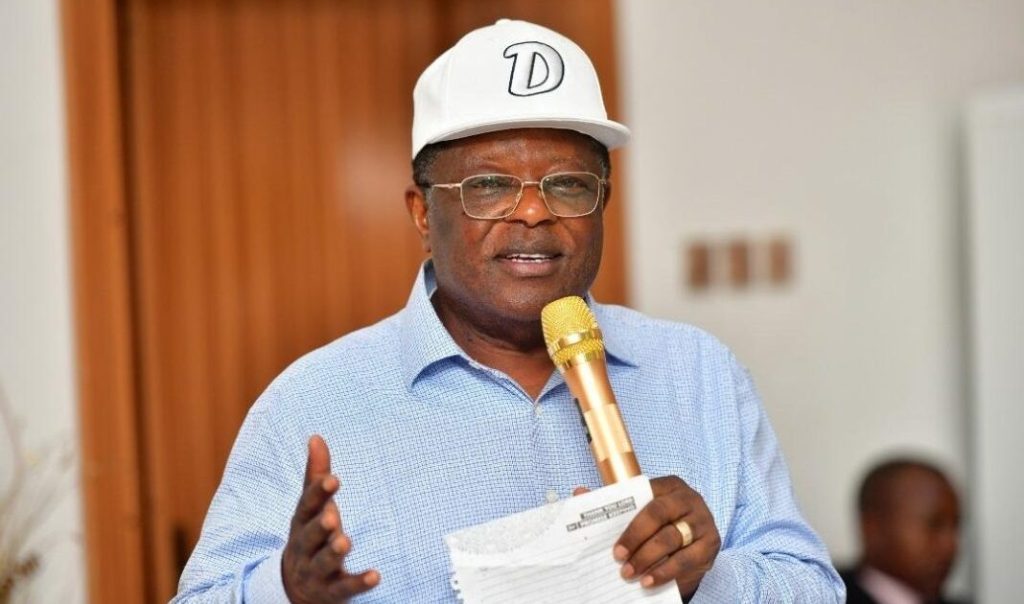Minister David Umahi’s inspection tour of road projects in the South-East and South-South geopolitical zones of Nigeria revealed a mix of satisfaction and concern regarding the progress of vital infrastructure development. While some contractors received commendation for the quality of their work, others faced stern warnings about potential contract termination due to delays and slow progress. The minister’s message was clear: accelerated project completion is paramount, and the ministry will not tolerate lagging timelines. This emphasis on timely delivery underscored the federal government’s commitment to enhancing infrastructure as a key driver of economic growth, aligning with President Tinubu’s “Renewed Hope Agenda.”
The East-West Road project, specifically Section III handled by Messrs Reynolds Construction Company, became a focal point of the minister’s scrutiny. Despite acknowledging the satisfactory quality of work, Umahi stressed the urgency of meeting the April 2025 deadline. He demanded increased resource deployment to hasten the pace of construction, warning of potential contract re-scoping or termination if sufficient progress was not demonstrated. This firm stance reflected the ministry’s determination to hold contractors accountable for their contractual obligations and ensure efficient utilization of allocated funds.
Further highlighting the ministry’s commitment to timely project completion, Umahi expressed strong dissatisfaction with the slow pace of work on Section IV of the Enugu-Port Harcourt Expressway (Aba – Port Harcourt), managed by Messrs China Civil Engineering Construction Company. Citing the contractor’s limited access to allocated funds (N7 billion out of N21 billion), the minister instructed the Federal Controller of Works in Rivers State to issue a formal warning, with the threat of contract termination looming if improvements were not observed. This proactive approach aimed to prevent further delays and ensure the efficient allocation of resources to projects demonstrating tangible progress.
While some contractors faced criticism, others earned praise for their performance. Messrs Arab Contractors (Nig.) Ltd., working on another section of the Enugu-Port Harcourt Expressway, received commendation for the quality of their work. However, even with positive feedback, the minister urged them to further accelerate construction by deploying resources to two additional sites. This emphasis on maximizing efficiency and expediting project timelines demonstrated the ministry’s comprehensive approach to infrastructure development, seeking to capitalize on successful practices while addressing areas needing improvement.
The Bodo-Bonny Road project, a crucial infrastructure initiative for the South-South zone, also drew the minister’s attention. While acknowledging Messrs Julius Berger (Nig.) Plc’s efforts to maintain work throughout the holiday period, Umahi urged a significant increase in the deployment of personnel, materials, and machinery to expedite progress. Given the project’s importance – a two-lane road with hard shoulders, 17 bridges, and reinforced concrete pavement on Bonny Island – the minister stressed the need for accelerated construction to realize its full potential for regional development. This targeted approach to individual project requirements demonstrated the ministry’s nuanced understanding of the unique challenges and opportunities presented by each undertaking.
Throughout his inspection tour, Minister Umahi emphasized the urgency of meeting deadlines and urged all federal contractors to intensify their efforts. He issued clear directives to federal controllers of works, requiring the presentation of at least four completed projects each for commissioning between February and May 2024. This mandate reinforced the ministry’s commitment to tangible results and established a clear benchmark for performance evaluation. While acknowledging past challenges, Umahi reassured Nigerians of President Tinubu’s unwavering commitment to completing inherited projects, as well as four newly initiated legacy projects. He emphasized the government’s focus on holding contractors accountable for delays, signaling a stricter approach to project management in the coming year. This firm stance reflects the administration’s determination to deliver on its infrastructure development promises and drive national growth. The minister’s call for enhanced teamwork among stakeholders – government, contractors, and the public – further underscored the collaborative effort required to achieve timely project completion and realize the envisioned benefits for Nigeria’s development.


